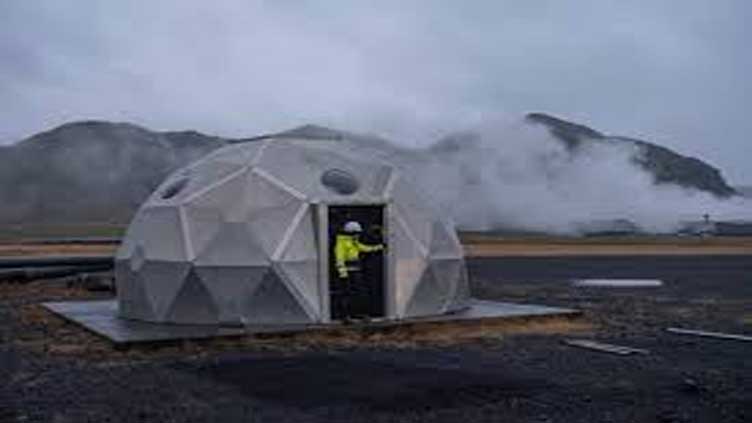Climate tech startup Vaulted Deep raises funds to inject carbon waste down wells

Technology
Climate tech startup Vaulted Deep raises funds to inject carbon waste down wells
(REUTERS) - US climate tech startup Vaulted Deep, which is locking away planet-warming carbon by burying organic waste deep underground, has raised $32 million in venture capital funding to expand operations, the company and investors said on Thursday.
The fundraising for the one-year-old startup reflects interest by investors and carbon credit buyers in Vaulted's fast, relatively simple process of using oil industry technology to flush carbon-containing waste down a well.
Many startups working to remove carbon from the air are developing more esoteric technologies that require more development, testing and proof at scale.
Vaulted Deep collects organic waste such as biosolids, which are treated human feces, from municipal waste plants and livestock manure and injects it about a mile deep, at plants in Los Angeles and Kansas. New funds will support the development of additional locations, including one in Colorado.
The injection wells can handle vast amounts of waste thanks to technology that is similar to fracking.
"We've shown we can move quickly. We can sell carbon removals people want and we can get new sites online," said Julia Reichelstein, Vaulted co-founder and CEO. The company also can get paid for waste disposal.
Venture capitalist Matt Eggers of Prelude Ventures, which is leading the round, said the technology was much more advanced than for many similar young companies. Permitting could be a worry, he said.
Frontier's members and partners have bought credits for more than 150,000 metric tons of carbon dioxide removal at a little under $400 a metric ton, and Vaulted has already delivered more than 5,000 tons.
With the return of Donald Trump as US president, some climate activists are worried that the US climate-action agenda may be put on the back burner.
Companies and others purchase carbon credits to offset emissions and cut their carbon footprint, although the voluntary carbon market of such buyers shrank to $723 million last year from about $2 billion in 2022, after being shaken by repeated scandals. Venture capital funding for climate tech startups has been falling since 2021, PitchBook data shows.
Still, Hannah Bebbington, Frontier's head of deployment, said carbon removal has bipartisan support, a nod to Republican state backing for climate projects that bring investment and jobs.
"It's very clear that we are not yet on track to meet climate goals. So if we want to hit sort of the order of 100 million tons by 2030 and on the order of 5 billion tons by 2050 we are going to need to see rapid expansion," she said.
The funding round included Lowercarbon Capital and several others.


